Introduction: Jim Carl is SVP at Brown & Brown Insurance. Jim’s background was unorthodox when CIB placed him with Brown & Brown in 2013; he had been a bail bond agent working for a family business. Jim was Rookie of the Year and has been a perennial Brown & Brown President’s Circle member and Tangle B Qualifier as a top producer.
Q: Thinking back to your transition from sales outside of insurance, besides the technical learning curve, what was the biggest transition challenge that you encountered?
A: Choosing what business to chase and what’s worthy of chasing. You have quite a bit of freedom. Getting the opportunities is up to you. It was up to me to figure out what do I want to go after and how.
Q: What surprised you the most (both good and bad) when you got into this career?
A: The good news is how much money you can actually make. The sky’s the limit. It just depends on how much you’re going to sell. It’s not easy but you can make as much as you want depending on how successful you are. If you truly want uncapped, residual based commissions, I don’t know of many other industries out there plus the client retention is 93% so the overwhelming majority of your clients stay with you and it’s that residual income on those renewals that helps you to build wealth.
The bad new – if you want to call it that – is that to be successful you don’t have a lot of work/life balance at the beginning. But I’m as successful as I am now because of the hard work I put in at the beginning.
Q: What’s the most important thing a new producer can do in year 1 to be successful?
A: Becoming technical and learning your craft. You’re going to be competing against the “grey hairs” because the average producer has been doing it for a long time and they are quite experienced. But if you can get that technical prowess and can show prospects that you have gained technical knowledge, even though you’re still new in this business, you will stand out and jump ahead. If you put the time in to learn your craft in year 1, it just pays multiple dividends in year 2 and beyond.
Q: What’s a typical “day in the life” look like for you now? How is it different today compared to when you started?
A: In the beginning you don’t have any clients, so all you’re doing is prospecting, building your centers of influence, and networking to get business opportunities anyway you can. Now, I have clients so more of my day is spent with clients but I spend part of everyday prospecting. While far less of my time is spent on prospecting, I’m so focused on what I’m doing now that I know what prospects to go after and I also have a certain set of target prospects that I continually contact and nurture.
Q: What’s your workload and your work/life balance look like now?
A: Again, you need to put the work in early and it pays dividend. It’s like compound interest. You’re not always seeing the returns on your work at the start. Once you get to the validation point, you will feel like you won the lottery. Now you’re getting paid for all that hard work, all those account that you brought in that are renewing, and you’re getting paid on all the new business you sell too. I certainly don’t coast now but I’m home more than I’ve ever been and that’s the combination of my wife and I having our daughter and I’m able to work fewer hours and make more money than I did when I started because of the recurring revenue on my renewal clients.
Q: What’s the one thing that happened in your career when you realized being a producer is what you should be doing?
A: When I landed my biggest account – almost $200K in revenue – and winning it even though I was still fairly new in the industry. I had a boss and a mentor working with me but I was the lead horse and the countless hours I put in to get the technical insurance knowledge I needed helped me to figure out this client’s problems and come up with an answer for them that nobody else had.
Q: Looking back on your choice to become a producer, how did that decision change your career trajectory?
A: I left a family company so it was difficult to make that leap. But I trusted you and my own research and I realized that in the long run becoming a producer was absolutely going to be better. The career change made me more comfortable in life and at a much earlier age than I thought possible. I’ve exceeded my income expectations even compared to my original career plan to become a lawyer. Besides the financial rewards, I deal with the CEOS and CFOS of well-known, established companies and that’s exciting and I love it.
Q: What career advice would you give to a sales person considering becoming a producer?
A: Be entrepreneurial and go after any type of account that you want and find your own industry niche. Don’t be afraid to go after bigger accounts. The bigger the account, the more money you’re going to make so why not go after the bigger accounts? A lot of other producers are intimidated by the bigger accounts and don’t seem to call on them as much so ironically these accounts don’t get as many producer sales calls as smaller accounts.
